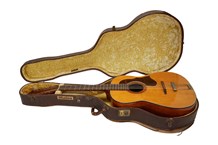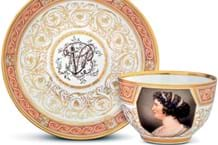The Bill, which enjoys all-party and, in principle, trade support, passed through the committee stage without change last week. It will place the burden on the dealer to show that they have carried out appropriate checks on items to find out whether or not it is legal to trade in them.
Trade associations have recommended for some time that due diligence be carried out as a matter of best practice, and courts can already take due diligence into consideration when settling civil disputes. However, when, as seems likely, the Bill becomes law, courts may take the view that where due diligence has not taken place, it may point to a dealer knowing or believing the object they have traded in to be legally tainted. That would not be enough to convict a dealer of an offence under the Act – the law would require proof beyond reasonable doubt – but it could well prove a strong contributory piece of evidence.
Prosecutions under the Act may be dealt with in two ways, depending on their seriousness. For those deemed to be lesser offences, summary justice would be in the hands of magistrates, with the maximum sentence set at six months’ jail and a £5000 fine. For the more serious indictable offences, defendants would face a jury in Crown Court, with the possibility of up to seven years in prison if found guilty.
However, this is not the area of the Bill which has concerned the trade. The British Art Market Federation, who have been lobbying MPs on the Bill, are reviewing the outcome of last week’s committee after two amendments, which they backed, failed to win the necessary support.
East Worthing and Shoreham MP Tim Loughton, who proposed the amendments, explained to the committee that both were aimed at safeguarding legitimate trade which might otherwise be caught up unwittingly under the Act.
The first amendment concerned how an object could become tainted under the law. The Bill includes a clause that states that an object would become tainted if “in the circumstances in which the object is removed or excavated an offence is committed” by the person removing it. The fear here was that the clause was loosely worded enough to risk tainting objects through the committal of a separate and unrelated offence – such as a breach in health and safety regulations – during the legitimate removal of an object.
Minister Kim Howells felt that there was little risk of the clause being interpreted in this way and reminded the committee that for a dealer to be prosecuted under the Act, his dealings would have to have constituted an offence. In other words, it was not enough for the object to be tainted, the courts must show that the dealer knew or believed them to be so.
The second amendment asked the committee to tighten up the definition of what constituted ‘a building’ under the Act. The Bill states that an object is deemed to have been removed if it is removed from (among other places) a building. As the Act would recognise the local laws of other countries in determining whether an object was tainted by its removal, BAMF feared that this might mean that dealers would also have to be aware of what defined a building in all the different countries where objects they traded in originated. This could prove a serious blight to honest dealing.
However, Mr Howells and the Bill’s sponsoring MP, Richard Allan, made it clear that this was not the intention and that for all purposes the English definition of a building would apply.
Other committee members felt that the amendment itself would limit the area the Bill was designed to cover, leaving loopholes that would benefit crime.
What is likely to concern BAMF and their chairman, Anthony Browne, is exactly how clear the unamended clauses of the Bill are. The Minister’s comments on what the legislation intends may prove reassuring and can help judges when it comes to interpreting the law. However, unless a court deems that the Act is too loosely worded to interpret clearly, it will not take the Minister’s comments into consideration. In that case, any judgement would have to be made on the clauses as they stand, and it is this that Mr Browne fears may unwittingly blight legitimate trade.
• The Bill, originally put before Parliament as a Private Members Bill, was originally blocked in February, but won Government backing after the sacking of the Iraqi museums during the recent war, as it was seen as a potentially effective measure for the prevention of trade in looted Mesopo-tamian artefacts.
Anti-looting Bill will bring in due diligence by the back door
DUE diligence will effectively become a legal obligation when the Bill aimed at clamping down on the illicit trade in cultural objects becomes law.




